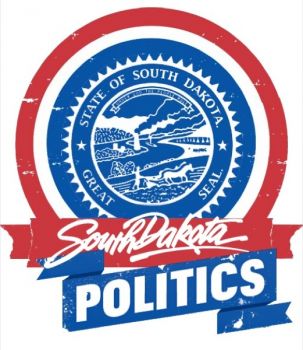The Gift of South Dakota
Subscriptions to South Dakota Magazine make great gifts!
Subscribe today — 1 year (6 issues) is just $29!
The Vanilla Budget
Dec 10, 2014
Imagine you are Governor. You won your first term with over 60 percent of the vote. Now you've just won a second term with over 70 percent of the vote. You aren't running or fundraising again. You just want to govern. You have four years, goo-gobs of political capital, and pliant supermajorities in both houses of your Legislature. What do you do?
You seize the moment and govern big, right? You pitch a big vision, tackle big challenges, and propose big reforms that maybe only one governor in a generation gets a chance to pursue.
When Bill Janklow won his second term in 1982 by over 70 percent, he proceeded to turn USD-Springfield into a prison, turn Dakota State into a computer school, and turn South Dakota into home base for Citibank. Like them or not, those policies took vision and courage, and they made a big impact on South Dakota.
Following his own enormous re-election triumph, Dennis Daugaard last week proposed a budget that makes me feel like we're running an old folks' home. Don't shake anything up. Don't upset the inmates. Just leave everything pretty much where it is so none of the residents get confused.
Facing a worsening teacher shortage, Gov. Daugaard proposes a middling 2 percent increase in state aid to K-12 schools.
Facing crumbling roads and bridges and the questionable federal commitment to replenishing the Highway Trust Fund, Gov. Daugaard includes in his budget no new transportation funding initiative.
Facing a sluggish state economy, Gov. Daugaard proposes no great changes in his economic development strategy and picks a fight with Chicago over airport posters.
With a historic chance to aim high, Gov. Daugaard shrugs and offers a budget that Republican and Democratic leaders have called “vanilla.”
There's a time for caution, humility, and a caretaker government. And then there's now, when South Dakota faces real problems and needs a governor to use his popular mandate to lead us to bold solutions, like...
- eliminating tax exemptions to raise teacher pay $10,000 over four years (that would raise us from last in the nation to 34th);
- proposing gas and wheel taxes to pay for $144 million in road repairs;
- explaining to his fellow Republicans that blowing raspberries at President Obama isn't worth giving up the billion dollars' worth of economic stimulus and 29,500 jobs we'd get from expanding Medicaid under the Affordable Care Act.
Investments now in health, education, and infrastructure would do South Dakota a lot of good for a long time. Investments like that also put great leaders in the history books. But if his budget proposal means anything, Gov. Daugaard isn't terribly interested in history or bold investment. He'll let a historic opportunity slip through his fingers and let South Dakota and its problems drift along unchanged.
Editor's Note: Cory Heidelberger is our political columnist from the left. For a conservative perspective on politics, please look for columns by Dr. Ken Blanchard on this site.
Cory Allen Heidelberger writes the Madville Times political blog. He grew up on the shores of Lake Herman. He studied math and history at SDSU and information systems at DSU, and has taught math, English, speech, and French at high schools East and West River.










Comments
Signing up for the Medicaid expansion doesn't subject us to any more federal whims than we are now with our Medicaid buy-in; it just makes more economy-stimulating money available to cover more people who are going without right now. If the ACA is repealed or federal Medicaid money dries up, we can pull right back out. Is there any practical downside to providing health coverage to lower-income working folks who can't afford it right now, or to bringing in hundreds of millions of dollars in healthcare spending that would stimulate the state economy?